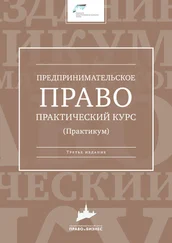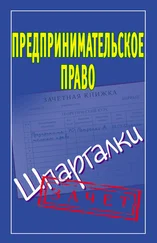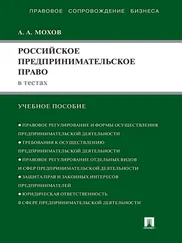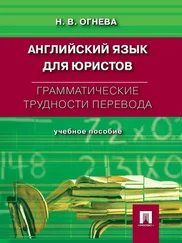1 ...7 8 9 11 12 13 ...37 Individuals who buy something from a minor have voidable ownership rights because the minor has the right to disaffirm the contract. The law permits a person having voidable ownership rights to transfer valid ownership rights to an innocent third-party purchaser of those goods. Thus, disaffirmance by a minor will not require the innocent purchaser to return the goods (real estate is an exception).
Persons deprived of the mental ability to comprehend and understand contractual obligations have the right to disaffirm their contracts.
A contract made by a person who is mentally infirm or who suffers from mental illness may be valid, if the person's infirmity or illness is not severe enough to rob that person of the ability to understand the nature, purpose, and effect of that contract. Thus, mental retardation or mental illness does not necessarily reduce a person's ability to enter into contracts. The legal question to be answered is whether the mental problem is so serious that the person did not understand the nature of the contract. If that is the case, the mentally infirm or mentally ill person may disaffirm any contract except one for necessaries. The person judged incompetent must return all consideration received, if he or she still has it.
Persons declared to be insane by competent legal authority are denied the right to enter contracts. Any contractual relationship with others results in a void agreement. In most jurisdictions, persons who knowingly take advantage of someone who is declared insane are subject to criminal indictment and prosecution.
Contracts agreed to by persons under the influence of alcohol or drugs may be voidable. Incompetence related to either alcohol or drug use must be of such a degree that a contracting party would have lost the ability to comprehend or to be aware of obligations being accepted under the contract. Disaffirmance in such cases requires the return to the other party of all consideration that had been received. However, such a return may be refused if evidence indicates that one party took advantage of the other's drunken or weakened condition.
Exercise 1. Comprehension questions:
1. When a minor disaffirms a contract what is he entitled to?
2. Give definition of minority and majority.
3. In what cases are the minors liable on their contracts?
4. What privilege do the minors have?
5. Explain what necessaries are.
6. When are the parents liable for contracts executed by minors?
7. When may people ratify contracts made during minority?
8. What rights do people who suffer from mental illnesses have when they make a contract?
Exercise 2. Find in the text English equivalents to the following:
Отказываться; утверждение; правоспособность; дееспособность; отказывать в подтверждении; эмансипировать; ратификация; опровержимая презумпция; последующее одобрение.
Exercise 3. Consult recommended dictionaries and give words or phrases to the following definitions:
Правоспособность; дееспособность; имущественная ответственность гражданина; недопустимость лишения и ограничения правоспособности и дееспособности; опека; попечительство; распоряжение имуществом подопечного; юридическое лицо.
Exercise 4. Be ready to talk on one of the following topics:
1. Describe the general legal presumptions with regard to a party's capacity to create a contract.
2. Explain why the law allows minors to void contracts for anything other than necessaries.
3. Distinguish between emancipation and abandonment and explain the meaning of each concept.
4. Assess the potential liability of minors who lie about their age when entering into a contract.
5. Contrast the legal liability of minors in contracts involving necessaries with their legal liability in contracts that do not involve necessaries.
6. Identify types of contracts that the law may except from the general rule that contracts by minors are voidable by the minor.
7. Contrast the contractual capacity of persons declared legally insane with that of those not declared legally insane.
8. Discuss the contractual capacity of drugged or intoxicated persons.
Exercise 5. Make up your own dialog on the case: In Jefferson Credit Corp. v. Marcano, a buyer who had «at best a sketchy knowledge of English language» signed an automobile installment sales contract which waived the implied warranties of merchantability and fitness for a particular purpose. The court found «it can be stated with a fair degree of certainty» that the buyer neither knew nor understood that he had made such waivers, even though they were printed in large black type.
Thus, the assumption of consumer ignorance may, among other things, be based upon his proven inability to read the language, in which the contract was printed, his proven lack of education or upon his status as a poor person. Seller's guile often takes the form of a clause difficult to understand and placed in fine print on the rear of the contract. However, it may also take the form of fraud, sharp practice, high-pressure salesmanship, and so on.
Unit 6
Consideration
Встречное предоставление
В силу обязательств одно лицо (должник) обязано совершить в пользу другого лица (кредитора) определенное действие, либо воздержаться от определенного действия, как-то: передать имущество, выполнить работу, уплатить деньги и т. п., либо воздержаться от определенного действия, а кредитор имеет право требовать от должника исполнения его обязанности. Обязательства должны исполняться надлежащим образом в соответствии с условиями обязательства и требованиями закона, либо обычаев делового оборота или иными обычно предъявляемыми требованиями (главы 21–26 ГК РФ). Договор предполагается возмездным, то есть сторона должна получить плату или иное встречное представление за исполнение своих обязанностей. Если же одна сторона договора обязуется предоставить что-либо другой стороне без получения платы или иного встречного представления, такой договор признается безвозмездным (глава 27 ГК РФ).
List of key terms and word combinations:
– accord – согласие; соглашение
– consideration – встречное удовлетворение, предоставление; компенсация
– detriment – ущерб, вред; невыгода
– disputed amount – сумма иска, исковая сумма
– forbearance – воздержание от действия; отказ от принятия мер
– illusory promise – нереальное обещание
Читать дальше
Конец ознакомительного отрывка
Купить книгу












